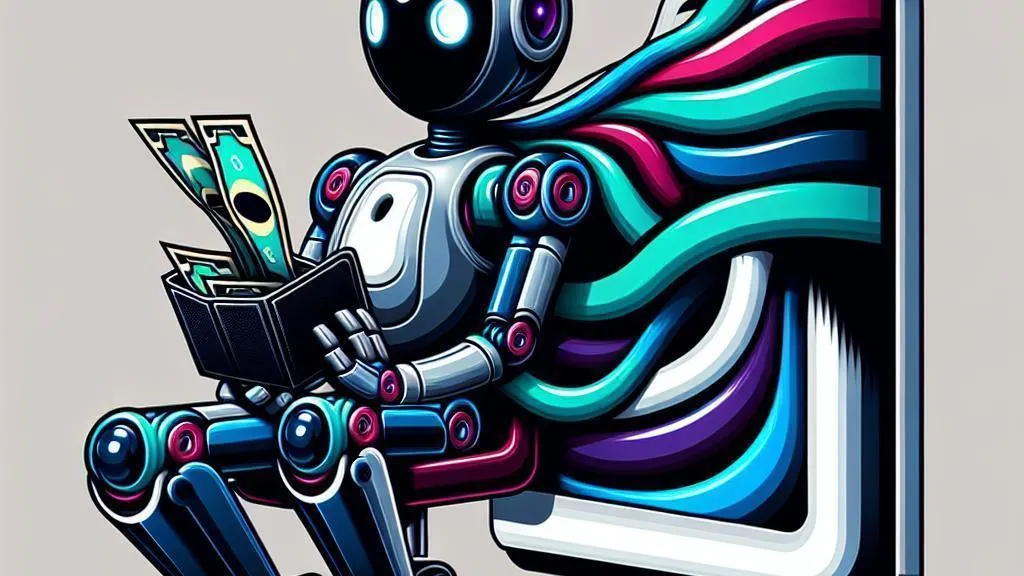You need to be thoughtful about how you implement AI into your product
As I learned of Google Maps’ latest foray into AI-powered recommendations, I was struck …

In the constantly evolving digital world, one must always stay one step ahead. The dawn of artificial intelligence (AI) in marketing represents another monumental shift, promising vast opportunities for small businesses and digital entrepreneurs. While the full potential of AI in consumer engagement has not yet fully blossomed, innovative experiments are paving the way to entirely new applications.
In this article, we dissect the influential role of AI in marketing, its potential to enhance various marketing processes, its strengths and limitations, and, ultimately, its transformative potential.
Artificial intelligence can automate and enhance various marketing tasks and processes. These include:
1. Content Creation: AI can generate straightforward content like social media updates, email subjects or responses, blog post suggestions, etc., pulling from existing data.
2. Customer Service: Through Chatbots, AI can respond immediately to customer inquiries, bookings, or complaints, providing 24/7 customer service support.
3. Personalization: AI can analyze customer behaviour and offer personalized content, product recommendations, etc., improving the customer experience.
4. Ad Targeting: Through data analysis, AI can help target advertisements accurately, enhancing conversion rates.
5. Sales Forecasting: AI can analyze previous sales data to predict future sales trends, helping businesses plan effectively.
Artificial intelligence can significantly improve data analysis, providing businesses with actionable insights. It allows enterprises to mine large amounts of data quickly, finding patterns and trends that human analysts might overlook. Machine learning algorithms can predict customer behaviour, help segment customers for targeted marketing, and optimize pricing strategies based on real-time market conditions.
Consumer insights derived from AI analysis can also be refined over time as the AI learns from interactions and data inputs. This leads to a deeper understanding of customer behaviours, interests, and preferences, enabling more effective personalization and targeting.
Benefits of AI in Marketing:
1. Time and Cost Efficiency: AI can automate repetitive and time-consuming tasks, significantly reducing labour costs and freeing employees for more strategic work.
2. Enhanced Customer Experience: Thanks to AI's ability to provide personalized product recommendations and customer service, businesses can provide customers a more engaging and satisfactory experience.
3. Improved Decision Making: AI's ability to analyze large data sets and provide valuable insights can enhance decision-making, making marketing strategies more effective and efficient.
1. Lack of human touch: As advanced as it may be, AI cannot fully replicate human emotions or understandings.
2. Dependence on Data Quality: The effectiveness of AI depends on the quality of the data fed into it. The output will likewise be ineffective if the data is inaccurate or biased.
3. High Implementation Costs: For small businesses, setting up AI may require significant investment in appropriate software, data management systems, and training.
Artificial intelligence is transforming marketing, offering countless opportunities for businesses to enhance their marketing processes and strategies. While there are challenges to implementing AI effectively, its benefits make it a valuable tool for any marketing toolbox. As AI technology thrives, businesses that adapt and embrace its potential will likely see a significant competitive advantage in the coming years.
Integrating artificial intelligence into marketing is more than just a trend. It symbolizes the future of how businesses connect with their consumers. While it comes with challenges, AI's significant benefits make it an irreplaceable tool for savvy marketers. As the AI landscape evolves, the first movers to adopt this cutting-edge technology stand to gain a substantial competitive advantage.
The era of AI-powered marketing dawned not just with the promise of increased efficiency but with the guarantee of transforming small businesses into digital powerhouses. So, let's embrace it with both hands.
AI in marketing is still in its early days, limited to narrow functions such as targeting digital ads or predicting sales. Moreover, the ability of AI to fully understand and engage with consumers in the same way a human can is still not entirely achievable. Yet, as companies increasingly experiment with new AI applications, they will improve their algorithms, gather more data, and find new uses for AI in marketing.
Some other posts you may like

You need to be thoughtful about how you implement AI into your product
As I learned of Google Maps’ latest foray into AI-powered recommendations, I was struck …
September 10, 2023
Read More
I think the future of operating systems is going to be subscription
The delay of Windows 12 isn’t just a hiccup in Microsoft’s release schedule but a …
September 10, 2023
Read More